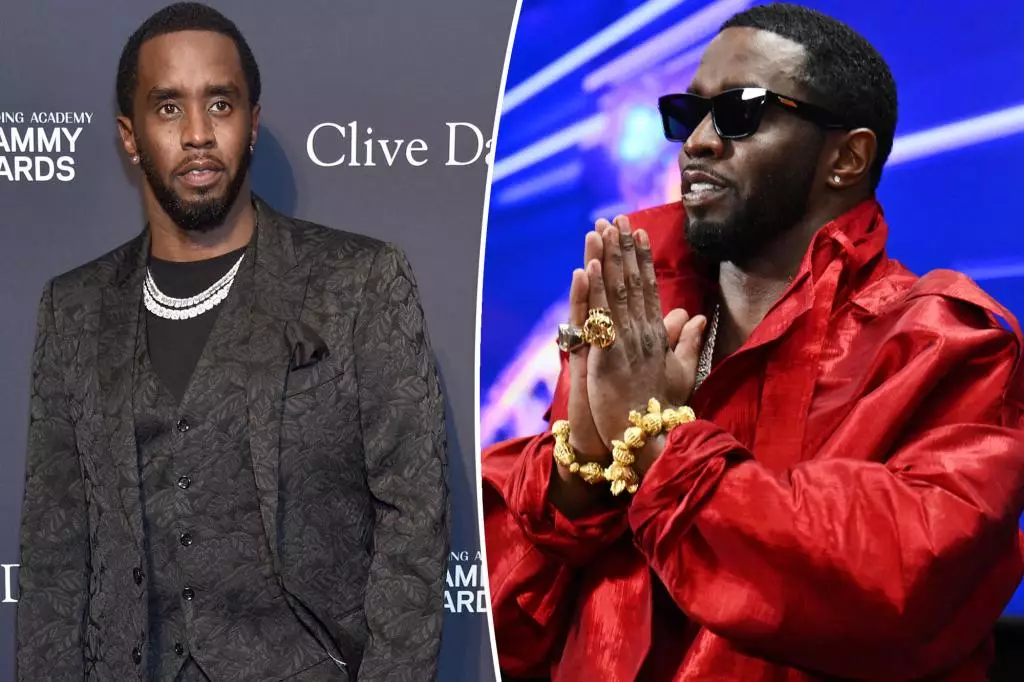In a legal saga echoing the undercurrents of the hip-hop industry, Sean “Diddy” Combs finds himself ensnared in a trial that raises unsettling questions about fame, power, and abuse. The highly publicized case, which involves allegations of racketeering and systemic sexual misconduct, is not just a trial of one man but a scrutiny of the broader culture that often shields such behaviors behind a veil of celebrity. The courtroom has become a battleground where the stakes are harrowingly high for both the alleged victims and the defendant.
Legal Developments and Implications
Recently, the final stage of jury selection faced unexpected delays, pushing back the process just before the anticipated opening arguments. While the postponement might have seemed procedural, it underscores the complexities that accompany high-profile trials. With accusations ranging from sex trafficking to violent abuse, the stakes multiply for Combs; a conviction on his myriad of charges could land him in prison for a minimum of 15 years, with the sobering possibility of a life sentence looming if found guilty.
The courtroom activities have been marked by tension as the prosecution attempts to establish a narrative of systematic abuse, portraying Combs as not merely a perpetrator but as a predator who exploited his position in the hip-hop hierarchy. The defense counters these accusations by framing the discourse around consent, shedding light on the debate surrounding adult behavior and the ethics of sexual dynamics in environments often characterized by excess and recklessness. This tension between personal freedoms and the reported realities faced by women exposes the frailty of the balance within sexual relationships, especially when power dynamics skew heavily in favor of one party.
The Jury’s Oath and the Weight of Evidence
The jury selection process has been anything but straightforward. From the onset, potential jurors were rigorously interrogated about their ability to remain impartial, particularly in light of disturbing evidence that includes videos of alleged abuse. This scrutiny is essential but evocative; it suggests that the jury must not only serve as a legal body but also as a moral compass navigating the murky waters of celebrity culture. It is telling that some jurors expressed discomfort after viewing the evidence, highlighting the emotional and psychological toll that such disclosures can take.
Indeed, the role of media and public perception is significant in this trial. Combs’s past actions, particularly an infamous 2016 incident that resurfaced on mainstream media platforms, denote a repeated pattern of behavior that many upcoming jurors disclosed they had encountered before even stepping into the courtroom. This context raises questions about whether jurors can truly set aside preconceived notions borne from sensational reporting. While the defense’s strategy might hinge on technicalities and jurisdictional nuances, the jury’s perspective remains deeply intertwined with the public narrative.
Voices from the Hip-Hop Community
This unfolding narrative has not only implications for the courtroom but ripples through the larger hip-hop community. Artists, fans, and advocates have voiced their divided opinions on Combs’s legacy versus the seriousness of the allegations. This dichotomy is emblematic of a larger societal issue where allegations of abuse are often overshadowed by the celebrity’s artistic contributions. The trial raises questions about accountability within the industry: when does the admiration for an artist’s work condone behavior that is damaging to others?
As the trial looms ever closer, the proceedings promise to be a focal point for discussions about toxic masculinity, gender dynamics, and the often hidden realms of predatory behavior in the arts. The ramifications of this case extend far beyond Combs himself; they challenge the very fabric of an industry that has, for far too long, observed and even tolerated abusive behavior in the shadow of success. This trial is not just about justice for the alleged victims but could also usher in a new wave of accountability in the cultural zeitgeist that celebrates hip-hop.
In essence, while Combs’s story unfolds in the legal arena, it shines a glaring light on the values we uphold as a society—challenging us to reconsider what we deem acceptable in both celebrity and everyday lives.

